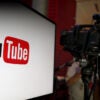Of all the isolated places on earth, North Korea is a strong candidate for the most dismal. Yet it is the case in the information age that no country can be 100 percent hermetically sealed from the rest of the world. Even in North Korea, cracks are appearing in the government’s information monopoly, which should provide hope that no audience is entirely beyond the reach of U.S. international broadcasting. Societies such as North Korea, Iran and Venezuela, where information is tightly controlled by repressive governments, do present valuable opportunities for U.S. international broadcasting and public diplomacy. In the case of North Korea, Voice of America, Radio Free Asia, and four South Korean broadcasters supported by the National Endowment for Democracy have growing audiences in this most totalitarian of societies. Currently Voice of America and Radio Free Asia each broadcast five hours a day into North Korea.
Now, progress may seem improbable in a country where radios and televisions are sold only with dials fixed to official government stations, where every household is hardwired to connect with the local Communist Party, where idolization of Kim Jong-Il is the primary content of every official channel, and where attempts to listen to foreign broadcasts can lead to 10 years of hard labor if discovered. As for the Internet, it exists only as an official tool of a very small number of government users. Yet, according to surveys of defectors coming out of North Korea, the appetite for independent information is growing. From the perspective of the North Korean regime, according to defectors, there is no greater challenge to its power. Particularly in North Korea’s border provinces with South Korea and China, growing audiences are able to receive news of the outside world that does not fit with the regime’s relentless propaganda. This creates the opportunity for independent thought, anathema for totalitarians.
As presented at the National Endowment of Democracy, (Thursday Feb. 18 — “The Voice of Freedom: Improving Programs for the Citizens of North Korea”), featuring prominent South Korean newsman Sangsoo Kim, particularly the black-market cross border trade with China provides North Koreans with greater access to technology. Efforts to send radios by balloon from South Korea are also a factor, but the balloons are vulnerable to wind and weather conditions and intercepts. Today, 58 percent of North Korean households have access to a cassette recorder with a radio; 46 percent have access to a color TV; 10 percent to a radio; 21 percent to a VCD player; and 7 percent have access to highly controlled mobile phone networks.
The most effective medium into North Korea today remains short-wave radio, a medium that unfortunately has become undervalued by the Broadcasting Board of Governors overseeing U.S. international broadcasting. New and sexier venues, such as television and the Internet, is where the focus is today. Vis-à-vis North Korea, medium wave broadcasts from Russia were an option in the past, but were closed down owing to pressure from Pyongyang on the Russian government. Meanwhile, short-wave can be beamed from South Korea and received primarily at night, when most underground users are able to take the risk and when climate conditions are optimal.
So what do North Koreans like to listen to? According to surveys of samples of the some 20,000 North Korean defectors living in South Korea, they like to listen to other North Koreans talking about their lives. They listen for information about the outside that gives them a sense of connectedness with the rest of the world. They want information about how to produce and bring their products to market – which stands to reason in a society beset by shortages and famines. Broadcasts from South Korea also have a strong Christian content, understandably so given that Christian missionaries often are instrumental in facilitating defections.
During the Cold War, information warfare was one of the most effective tools in the toolkit of the U.S. government against the Soviet Union. Reliable, factual information about the world and the truth about their own society arms citizens of oppressed societies to take the first steps towards freedom.

































2 Replies to “Free Flow of Information: A Great Tool Against Totalitarianism”